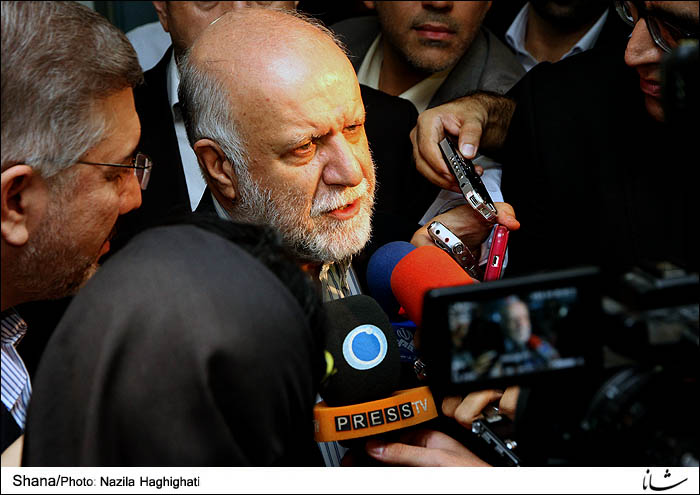 Minister of Petroleum Bijan Namdar Zangeneh says Iran will need no more gasoline imports next year when a major refinery being built in the Persian Gulf becomes operational.
Minister of Petroleum Bijan Namdar Zangeneh says Iran will need no more gasoline imports next year when a major refinery being built in the Persian Gulf becomes operational.
Zangeneh said Iran will even turn to an exporter of gasoline and diesel once the Persian Gulf Star Refinery comes on stream. The next Iranian year, meant by Zangeneh, begins in March.
Gasoline stood out as the handiest lever when the United States first started its economic strangulation of Iran over the country’s nuclear energy program.
The measure forced Iran to convert some petrochemical plants to produce gasoline which is highly polluting.
The production of petrochemical gasoline was halted after President Hassan Rouhani came to office and imports resumed after Iran clinched a temporary nuclear agreement.
Iranians burn less than 70 million liters of gasoline a day, of which five million liters is imported, the minister said.
Zangeneh said he was “not worried” about gasoline and diesel supplies next year.
“With the completion of the Persian Gulf Star Refinery, 36 million liters (a day) will be added to the country’s gasoline and diesel production,” he said.
“And with the entry of one train of the refinery into generation, 12 million liters per day will be added to the country’s gasoline and diesel production. Half of this capacity is enough to dispense with gasoline imports next year,” Zangehen added.
The minister said, “With the operation of one train of the refinery, we will turn to an exporter of these two oil products.”
Iran is building the Persian Gulf Star Refinery in Assalouyeh at an estimated cost of 2.5 billion euros. The plant is further expected to produce 360,000 barrels per day of gas condensates on top of jet fuel and other products.
The country is building another oil refinery in Kermanshah in western Iran. Zangeneh said the project faces financing problems, but efforts are being made to work them out.
By Press TV
The Iran Project is not responsible for the content of quoted articles.

 QR code
QR code